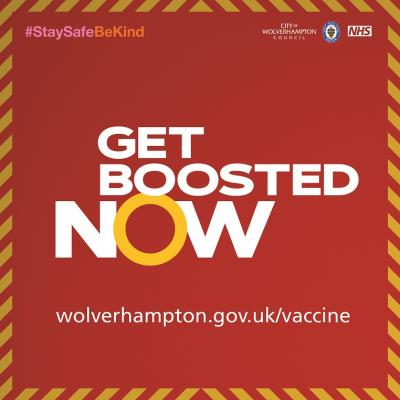Although the infection rate in the city has fallen substantially over the last week, it remains around the level it was at the peak of the third wave in 2020.
Despite this, the number of people either hospitalised or ending up in intensive care is considerably lower than this time last year. Deaths are also much lower too, though a number of fatalities have sadly been recorded locally in recent days.
Wolverhampton’s Director of Public Health John Denley said: "Infection rates have been much higher through this wave, driven by the more transmissible Omicron variant, but the number of people falling seriously ill or dying with Covid-19 is mercifully much lower – and that's primarily thanks to the vaccine.
"Data shows that, nationally, nearly 90% of intensive care patients have not fully taken up their vaccination offer. And by that, we mean they either haven't had their first or second doses, or their booster if they are eligible for it.
“Our message is clear – the vaccines work, and that’s why, despite the high infection rate, the country is in a position where Plan B restrictions can be fully lifted from next Thursday.
“But we musn't lose sight of the fact that more than 3,000 people in our city tested positive for Covid-19 last week and that the virus still presents a very real danger, particularly to people who haven't been vaccinated.
“There are well over 100 people in hospital in Wolverhampton with Covid-19, and very sadly we are still seeing deaths, many avoidable.
"So, if you haven't already had your first or second jab, or you are now due your booster, please get it as soon as possible.
"In doing so, you will not only give yourselves much greater protection from serious illness were you to catch Covid-19, but you will also help reduce the pressure on the NHS so that it can continue to provide vital support to others.”
Professor David Loughton CBE, Chief Executive of The Royal Wolverhampton NHS Trust, said: “While the number of local cases may have decreased we are seeing many younger, unvaccinated patients who end up needing critical care. We know their chances of recovery would be much higher if they had had their vaccinations.
“None of us can afford to be complacent about Covid-19 or the often life changing impact it has on both its victims, their families and our wider communities.”
Professor Mike Wade, Interim Regional Director of Public Health for the Midlands, said: “The vaccine is our best line of defence, and this includes the all important booster dose.
“We know that specific groups are putting themselves at risk by not taking up the vaccine – including men under 40 and women who are pregnant or breastfeeding. The vaccines are safe, and they greatly reduce the chance of getting seriously unwell, being hospitalised, or even dying, if you catch Covid-19. That’s why we are urging people to get vaccinated, get boosted, get protected.”
Mr Denley added: “Remember, if you’ve not had your first jab yet, or you didn’t go back for your second or your booster when it was due, it’s not too late – and the sooner you have it, the better.”
Everyone aged 12 and over can get a first and second dose of the vaccine. Boosters are available to everyone aged 16 and over, and some children aged 12 to 15.
A number of vaccination clinics are operating in Wolverhampton. Opening times and ages vary from site to site, but all offer first, second and booster vaccinations without an appointment. For a full list of local vaccination centres, please visit Find a walk-in coronavirus (COVID-19) vaccination site. To book an appointment in advance, please visit Book or manage a coronavirus (COVID-19) vaccination or call 119.
Latest figures show there were 1,160.3 new cases of Covid-19 per 100,000 people in Wolverhampton over the last 7 days. That means 3,052 people tested positive for the virus in that same period – though the true number of cases will likely be higher.
